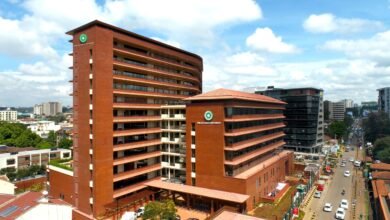
Extreme weather around the globe associated with the El Nino weather pattern is making sugar more expensive in Nigeria, which is largely dependent on imported sugar.
Ismail Hassan, who sells granulated sugar at a market in Nigeria’s capital, Abuja, says the price has gone up in the last few weeks, leading to regular customer complaints.
“We used to purchase a bag of sugar for 45,000 to 47,000 Naira (around 49.21 to 51.4 U.S. dollars), but now it’s priced at over 60,000 Naira (about 65.62 U.S. dollars). While customers initially bought it at the lower cost, complaints have arisen, and some have ceased purchasing due to the increased price,” said the sugar trader.
The price of sugar has been on the rise in recent months, reaching an 11-year high last year.
Despite government efforts to increase local production, Nigeria’s Sugar Development Council says the country has relied on imports over the last three decades. And if prices continue to rise, small retailers may not be able to afford it for much longer.
El Niño, a naturally occurring climate pattern that takes place when sea temperatures in the Eastern Pacific rise, tends to make conditions in major sugar-exporting countries, such as Thailand and India, drier than normal.
Last year, India banned domestic mills from exporting sugar, halting shipments for the first time in seven years as a lack of rain cut cane yields.
“It has affected agricultural production because it has changed the patterns of rainfall, and whatever has affected the normal situation will definitely affect production at the end of the day,” said Caleb Menegbe, an agricultural expert.
He said the government needs to subsidize sugar imports in the short term while exploring climate-friendly and sustainable domestic agriculture.
“I feel that the government should come in and see a way of how they could bring in incentives and for the fact that we are importing a lot of sugar, as it stands, they could actually help us in the forex and give importers a little relief in terms of forex, give them foreign exchange for a lower price just to see how they could cushion the effects,” Menegbe said.
Late last year, the Nigerian government commenced a major irrigation, or dry season farming, campaign starting with crops like wheat, rice, maize, sorghum, soybeans, and cassava with funding from the African Development Bank.
The move is expected to cover other crops like sugarcane and reach 250,000 farmers by 2024. It has also unified the exchange rate between the Naira and the U.S. dollar to close the gap between the official and black-market rates.






